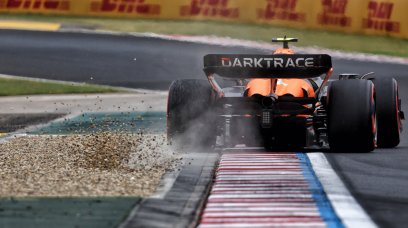More than 40 local, district and provincial municipalities across the country have benefited from the 2021/2020 Strategic Partnership for Sustainable Development – not only by improving the collection and recycling of PET plastics, but also by creating much-needed income-generating opportunities in this sector and helping to develop South Africa’s circular economy.
One such project includes the Zonda Insila Program (ZIP), which was launched in Brighton in 2019 with just four projects and now boasts 14 projects supporting 240 community members covering the municipalities of Nkangala, Gert Sibande and Elanzeni districts in Mpumalanga.
“With the level of interest shown and the growing number of informal waste pickers, there is no doubt that ZIP is encouraging more and more young people to shift their thinking towards waste as a form of potential income generation. It is outdated to say that waste is garbage,” said ZIP Coordinator Lina Duduzile Ndala.
For the past 17 years, PETCO, South Africa’s most experienced plastics producer responsibility organization, has partnered with its members with municipalities on sustainability programs to improve waste management efficiency and recycling rates. Key among urban waste management priorities is the diversion of valuable waste from landfills and the placement of waste pickers in the recycling value chain.
“Waste is not garbage, it’s an economy,” Ndala said. “The role of stakeholders like municipalities, PETCO and the province is very important because they have to take the initiative.”
PETCO’s role in such municipal waste management partnership projects is to provide equipment and infrastructure support for waste collectors and waste buy-back centers – with the aim of integrating waste collectors into the formal recycling sector – as well as training and skills development for municipal staff involved in waste management. waste.
“There are currently very few municipal source separation systems in place, so we are working with interested municipalities to create collection projects and expand PET collection into new areas,” said PETCO CEO Cheri Scholz.
“This year, we held 28 training seminars for 1,357 waste collectors in eight provinces and another three accredited business trainings.
“We help develop sustainable businesses and sponsor infrastructure and equipment to unlock collections and improve the quantity and quality of post-consumer PET collected,” she said.
By law, municipalities must develop Integrated Waste Management Plans (IWMPs) to drive the implementation of the National Waste Management Strategy. Although legislation requiring producer responsibility organizations (PROs) to partner with municipalities took effect in November 2021, PETCO has been doing so since 2005.
Another successful drive has seen the municipality of Drakenstein reap the rewards of a recycling program launched four years ago at the Wellington landfill, with several success stories.
According to Tis Serfontein, senior manager of solid waste and landfill management at the municipality of Drakenstein, PETCO has been “amazingly supportive of this project from the beginning and still is.”
The Drakenstein municipality was one of the first municipalities to successfully complete “the integration of waste collectors into the official waste management industry at the municipal level” – one of the national government’s main areas of activity, Serfontein said.
“As soon as our plant for the recovery of materials [MRF] and waste transfer station are fully operational in 2022/23, these waste entrepreneurs will be located. They will be able to increase their production, and it will also mean that approximately 50 tons less material will reach the landfill,” Serfontein said.
PETCO CEO Cheri Scholz said waste pickers “play an important role in diverting waste from the landfill and will play an increasingly important role in municipal waste collection systems and curbside projects.”
“Their integration advances South Africa’s priorities such as job creation, poverty reduction, environmental protection and economic transformation,” Scholz said, adding that PETCO’s experience in working with the entire PET value chain has enabled it to help municipalities achieve sustainable development. .
“Last year alone, PETCO and our partners ensured that 90,402 tons of post-consumer PET, equal to 2.1 billion bottles, were collected for recycling, saving 560,495 cubic meters from city landfills. A further 1.2 billion rand was injected into the national economy from the sale of recyclables.”
Scholz added: “The impact of partnerships on the recycling value chain cannot be underestimated, and collaboration is critical to enabling change to be implemented on a national scale.”
Plans are currently being developed to assist a further 21 sustainability projects with equipment, branding and accredited training.
To partner with PETCO, contact Belinda Booker: belinda.booker@petco.co.za







